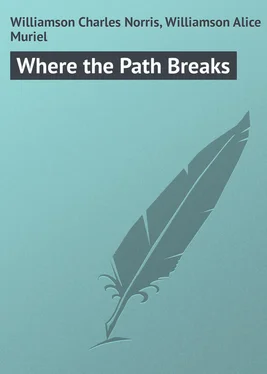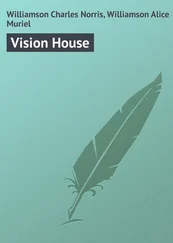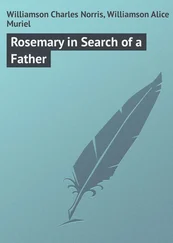Charles Williamson - Where the Path Breaks
Здесь есть возможность читать онлайн «Charles Williamson - Where the Path Breaks» — ознакомительный отрывок электронной книги совершенно бесплатно, а после прочтения отрывка купить полную версию. В некоторых случаях можно слушать аудио, скачать через торрент в формате fb2 и присутствует краткое содержание. Жанр: foreign_prose, на английском языке. Описание произведения, (предисловие) а так же отзывы посетителей доступны на портале библиотеки ЛибКат.
- Название:Where the Path Breaks
- Автор:
- Жанр:
- Год:неизвестен
- ISBN:нет данных
- Рейтинг книги:5 / 5. Голосов: 1
-
Избранное:Добавить в избранное
- Отзывы:
-
Ваша оценка:
- 100
- 1
- 2
- 3
- 4
- 5
Where the Path Breaks: краткое содержание, описание и аннотация
Предлагаем к чтению аннотацию, описание, краткое содержание или предисловие (зависит от того, что написал сам автор книги «Where the Path Breaks»). Если вы не нашли необходимую информацию о книге — напишите в комментариях, мы постараемся отыскать её.
Where the Path Breaks — читать онлайн ознакомительный отрывок
Ниже представлен текст книги, разбитый по страницам. Система сохранения места последней прочитанной страницы, позволяет с удобством читать онлайн бесплатно книгу «Where the Path Breaks», без необходимости каждый раз заново искать на чём Вы остановились. Поставьте закладку, и сможете в любой момент перейти на страницу, на которой закончили чтение.
Интервал:
Закладка:
Not having given his parole, he was carefully watched at first, but as time went on his lameness, his exemplary conduct, and air of stoical resignation deceived his guards. One dark night he slipped away, contrived to pass the frontier, bribed a Dutch fisherman to sell him clothing, and after a week of starvation and hardship limped boldly into Rotterdam. There he parted with the remainder of his earnings (save a few marks) for a third-class ticket to New York, trusting to luck that he might earn money on board as he had earned money in camp, enough at least to be admitted as an emigrant into the United States. Those few marks which he kept, he invested in artist’s materials, and on shipboard soon made himself something of a celebrity in a small way. He was nicknamed “the steerage Sargent,” and with an hour or two of work every day put together nearly sixty American dollars during the voyage. That sum satisfied him. He refused further commissions, for a great new obsession dominated his whole being, preoccupying every thought. Absorbed in it, he found his portrait-making exasperating work. Something within him that he did not understand but was forced to obey, commanded the writing of a book – the book, not of his life or of his outside experiences, but of his heart.
He had no idea of publishing this book after it was written. Indeed, at the beginning, such an idea would have been abhorrent to him. It would have been much like profaning a sanctuary. But there were thoughts which seemed to be in his soul, rather than in his brain, so intimate a part of himself were they; and these thoughts beat with strong wings against the barrier of silence, like fierce wild birds against the bars of a cage.
So ignorant was John Denin of book-writing that he did not know at all how long it would take to put on paper what he felt he had to give forth. He knew only that he must say what was in him to say; and every moment when he was not writing he chafed to get back to his book again. Indeed, it was but his body which parted from the manuscript even when he ate, or walked, or slept. His real self was writing on and on, every instant, after he had gone to bed, and most of all, while he dreamed. The idea for the book, when it sprang into his mind, was full-grown as Minerva born from the brain of Jove. Denin felt as if he were a sculptor who sees his statue buried deep in a marble block, and has but to hew away the stone to set the image free. He got up each morning at dawn, bathed, dressed hurriedly, and worked till breakfast time, when a cup of tea and a piece of bread were all he wanted or felt he had time to take. Then, in some out-of-the-way, uncomfortable corner where his fellow travelers of the steerage were not likely to interrupt him, he wrote on often till evening, without stopping to eat at noon. He used ship’s stationery begged from the second class, sheets off his own drawing pads, and small blank books that happened to be for sale in the wonderful collection of things ships’ barbers always have. Sometimes he scribbled fast with one pencil after another: sometimes he scratched painfully along with a bad pen. But nothing mattered, if he could write. And nothing disturbed him; no noise of yelling laughter, no shouting game, no crying of babies, nor blowing of bugles.
“When that chap’s got his nose to his paper, he wouldn’t hear Gabriel’s trump,” one man said of him to another. Everybody asked everybody else what he was doing when he suddenly stopped his traffic of portraits; but nobody dared put such a question to him. Some people guessed that he was a journalist in disguise, who had been in the war-zone, and was working against time to get his experiences onto paper before the ship docked at New York. But, as a matter of fact, it did not occur to Denin to wonder when he should finish until, suddenly and to his own surprise, the strange story he had been writing – if it could be called a story – came to its inevitable climax. His message was finished. There was no more that he wished to say.
This was at twelve o’clock one night, and the next morning at six the ship passed the Statue of Liberty.
Denin felt dazed among his fellow emigrants, all of whom were of a different class in life from his, and all of whom seemed to have something definite to expect, something which filled them with excitement or perhaps hope, making them talk fast, and laugh as the immense buildings of New York loomed picturesquely out of the silver mist.
“Othello’s occupation’s gone,” he found himself muttering as he leaned on the rail, a lonely figure among those who had picked up friendships on the voyage. He realized that he had been almost happy while he was writing his story. Now that it was finished and had to be put aside, he had nothing to look forward to. He was indeed sans bourne .
What the other steerage passengers did on landing, he did also. Vaguely it appealed to his sense of humor (which had slept of late) that he, Sir John Denin, should have his tongue looked at and questions put to him concerning his means, character, and purpose in coming from Europe to the United States. He went through the ordeal with good nature, and passed doctors and inspectors without difficulty. When he was free, he joined a couple of elderly Belgians to whom he had talked on shipboard, and with them set forth in search of a cheap lodging-house, where he might stay until he made up his mind what work he was fit to try for, and do. He was a poor man now, and could not afford to live in idleness for more than a few days. He realized this, also that a “job” of any kind was hard to get, and doubly hard for him since he was not trained for clerical work or strong enough at the moment to undertake manual labor. Still, he could not resist the intense desire he had to shut himself up and read the book which, when he thought of it, seemed to have written itself. He had always gone on and on, never stopping to glance back or correct; and he had a queer feeling that the story would be a revelation to him, that help and comfort and strength would come to him from its pages.
The Belgians remained in the lodging-house only long enough to unpack a few things. They then went out together to see New York, and visit an agency which had been recommended to them. But Denin shut himself up as he had longed impatiently to do, in the tiny back room he had engaged, on the top floor of a dreary house. There he took from the cheap bag bought in Rotterdam – his one piece of luggage – the oddly assorted pages of manuscript which made up a thick packet. With the moment that he began to read, the stained walls and the dirty window with a fire-escape outside vanished as if some genie had rubbed a lamp.
The story was of a soldier and his love for a girl who did not greatly care for him. She married him rather than send him away empty-hearted to the front, cold with disappointment, when it was in her power to arm him with happiness. They parted on the day of the wedding. The soldier went to France and was killed in his first fight. The girl grieved because it had not been possible to love the man with her whole heart, and because he had had no time (so she believed) to taste the joy she had sacrificed herself to give. But the man, going into battle and afterwards dying on the battlefield, was divinely happy and content. He saw clearly that his love for her had been the great thing in his life, its crown and its completion; that the thought of her as his wife was worth being born for; that it made death only a night full of stars with a promise of sunrise. The story did not end with the ending of the soldier’s life. The part before his death was no more than a prelude. The real story was of the power of love upon the spirit of a man after his passing, and his wish that the adored woman left behind might know the vital influence of a few hours’ happiness in shaping a soul to face eternity. The book was supposed to be written in the first person, by the man, and was in four parts. The first told of the courtship and marrying; the second, of the man’s going away from his wife-of-an-hour, to the front, and his fall on the battlefield; the third described the regret of the girl that she had not been able to give more, and her resolve to atone by denying herself love if it came to her in future; the fourth, the dead soldier’s attempt to make her feel the truth; that she was free of obligation because those few last hours had been a gift of joy never to be taken from his soul.
Читать дальшеИнтервал:
Закладка:
Похожие книги на «Where the Path Breaks»
Представляем Вашему вниманию похожие книги на «Where the Path Breaks» списком для выбора. Мы отобрали схожую по названию и смыслу литературу в надежде предоставить читателям больше вариантов отыскать новые, интересные, ещё непрочитанные произведения.
Обсуждение, отзывы о книге «Where the Path Breaks» и просто собственные мнения читателей. Оставьте ваши комментарии, напишите, что Вы думаете о произведении, его смысле или главных героях. Укажите что конкретно понравилось, а что нет, и почему Вы так считаете.











